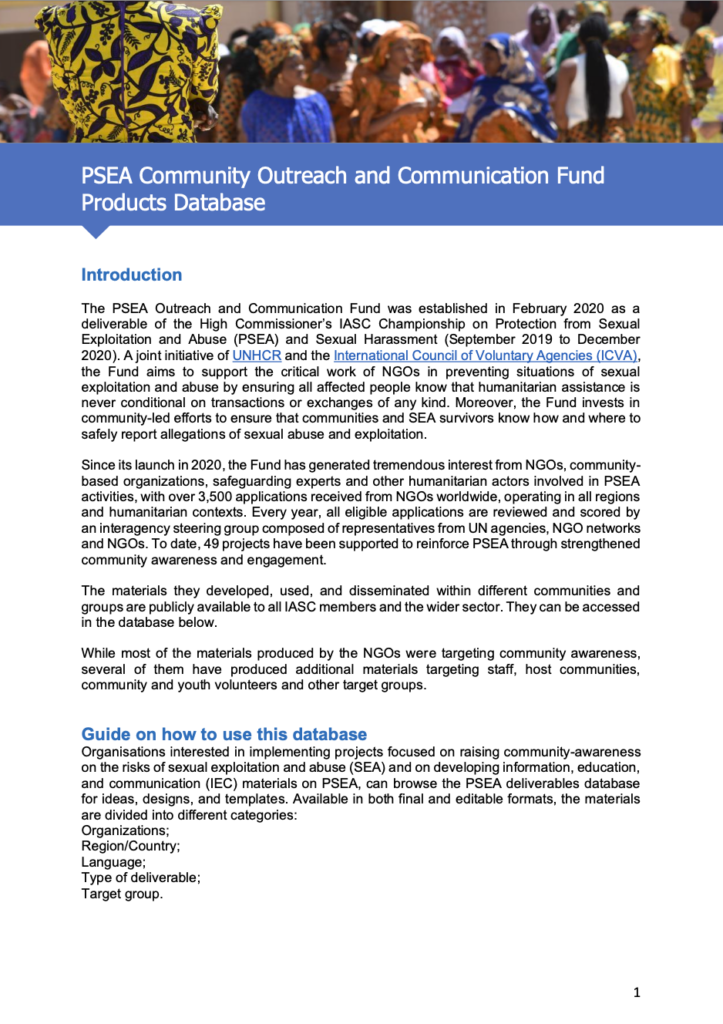-
Search -
Accessibility -
Members Login
Sexual exploitation and abuse of crisis affected populations and humanitarian staff by actors who provide aid is neither a new nor a standalone issue. Since the media disclosure of sexual exploitation and abuse (SEA) cases by humanitarian actors in February 2018, efforts across the sector to address the issue and increase protection against SEA have multiplied.
ICVA recognises the need to ensure that safeguarding is incorporated into every aspect of an organisation’s process and operations, from the support of the Board and the Executive Director to the programmes and partnerships on the ground. This is reflected in ICVA’s policy on PSEA.
ICVA and members organisations reaffirmed their accountability towards affected populations, partners, supporters and public at large at the 2018 ICVA General Assembly. The Commitment and Motion to Action on PSEA and Sexual Harassment also mandates the Secretariat to document and voice the PSEA work, challenges and good practices existing among members and identify recommendations to feed efforts at international, regional and national level.
The framing of ICVA’s response on the technical and also the cultural and political dimensions contributes to solutions-orientated reflections. ICVA is a critical and constructive voice of the new polices and their impact on resourcing and capacity building of smaller organisations. Our two publications “The Long Run to Protection Against Sexual Exploitation and Abuse” which shares the experiences of ICVA members on PSEA, and our discussion paper on “Enhancing Accountability: Is a sector Ombudsperson the next step?” also contribute to the debates.


